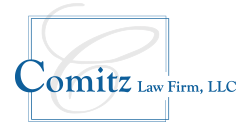 Distributing estate assets to heirs and beneficiaries is one the most well-known roles of a personal representative. Before this duty can be carried out, the personal representative must ensure that the estate’s debts are paid off using estate assets.
Distributing estate assets to heirs and beneficiaries is one the most well-known roles of a personal representative. Before this duty can be carried out, the personal representative must ensure that the estate’s debts are paid off using estate assets.
Who Pays the Debt of a Decedent?
When a person passes away with debt, the estate is typically liable to pay those debts. However, there are a few important exceptions which include:
- Co-signers
- Joint account holders
- Spouses in community property states (Pennsylvania is not a community property state)
After marshaling the estate’s assets the personal representative makes an accounting of all debts or liabilities. It’s up to the personal representative to determine which debts are valid and which are not. Attorney Jonathan Comitz and his legal team can help with that determination and other complex estate administration issues.
In Pennsylvania, the personal representative must publish a notice once per week for three consecutive weeks in a newspaper of general circulation in the settlement county, and in the legal periodical, if any, designated by rule of court for the publication of legal notices. The notice should request that creditors inform the personal representative about any debts, and that debtors pay any debts owed.
Under 20 PA Cons Stat § 3532, creditors have one year from the date of the first publication of notice to creditors to make any claims. However, creditors can still make potentially valid claims against the estate even after this deadline has expired, until the assets of the estate have been distributed.
The personal representative cannot distribute funds to the beneficiaries until all creditor claims brought forward within the one-year period are paid (unless the estate is so large to ensure that there are enough funds to pay any claims that may be brought forward following the advance distribution to the beneficiaries.)
If the personal representative distributes funds to the beneficiaries and the estate does not have enough funds to pay the claims brought within this one-year period, the personal representative will be liable for paying the creditors.
If an estate’s debts are greater than its available assets, the estate is insolvent. Section 3392 of the Pennsylvania Probate, Estates, and Fiduciaries Code prescribes the order in which creditor claims are to be paid. If a personal representative believes or knows that the estate is insolvent, he or she should not pay any creditor claims until all creditors have brought forth their claims during the one-year creditor period.
Common Debts
Mortgage debt
Like credit card debt, mortgage debt belongs to the borrower of the mortgage loan. If a spouse was a joint owner, he or she remains liable for the mortgage loan.
Mortgage liens
A lien is a legal claim against a property for an outstanding debt. The lien stays with the property until it is paid, whether by the estate, the new heir, or the forced sale of the home.
Medical debt
Medical debt is not discharged after death. It becomes one of the estate’s liabilities. Families often encounter unexpected medical debt after death.
Medicaid estate recovery
The federal government mandates states to recover long-term care costs for Medicaid beneficiaries aged 55 and older. While a person is receiving Medicaid, they may own
a home while receiving Medicaid. But once that person dies, Medicaid can seek repayment and can even force the sale of a home.
Credit card debt
Credit card debts belong to the credit card account holder. Absent a co-signer, the estate should pay the debt.
Personal loans
The deceased may have taken a personal loan from a parent, family member, or friend. That loan may or may not have a legally valid claim against the estate.
Funeral expenses
Funeral and burial or cremation services are part of the estate’s debt if these expenses haven’t been prepaid.
Car loans
A car loan is not forgiven on death. It becomes the responsibility of the estate and any co-signer. If the estate or the designated heir does not assume car payments, the car can be repossessed.
Federal student loans
Federal student loans are discharged upon death. The student’s estate is not responsible for repaying any remaining federal student loans.
Private student loans
Private lenders vary in how they handle student debt. Sallie Mae and some other lenders discharge the debt upon death. Some private lenders will require a parent to continue loan payments.
If you have a legal issue involving estate administration, call the Comitz Law legal team at 570-829-1111 or email info@comitzlaw.com.


